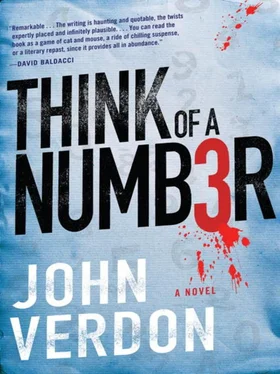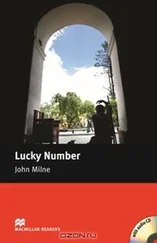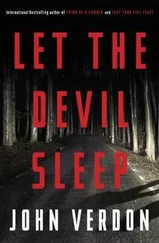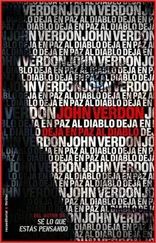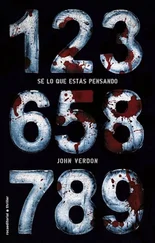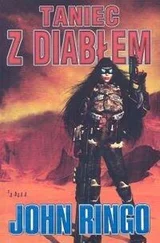A dark day
The three-hour drive was a journey into ugliness, a perception amplified by the cold drizzle that required continual adjustment of the intermittent wiper speed. Gurney was depressed and edgy-partly because of the weather and partly, he suspected, because his dream had left him with a raw, oversensitive perspective.
He hated the Bronx. He hated everything about the Bronx-from the buckled pavements to the burned-out carcasses of stolen cars. He hated the garish billboards touting four-day, three-night escapes to Las Vegas. He hated the smell-a shifting miasma of diesel fumes, mold, tar, and dead fish, with an insinuating undertone of something metallic. Even more than what he saw, he hated the memory from his childhood that invaded his mind whenever he was in the Bronx-hideous, prehistorically armored horseshoe crabs with spearlike tails, lurking in the mudflats of Eastchester Bay.
Having spent half an hour creeping across the clogged “expressway” to the last exit, he was relieved to negotiate the few city blocks to the agreed-upon meeting place-the parking lot of Holy Saints Church. The lot was enclosed by a chain-link fence with a sign warning that parking was reserved for those engaged in church business. The lot was empty except for a nondescript Chevy sedan, beside which a young man with a fashionably gelled crew cut was speaking into a cell phone. As Gurney parked his car on the other side of the Chevy, the man concluded his call and clipped the phone to his belt.
The drizzle that had shrouded most of his drive that morning had diminished to a mist too fine to see, but as Gurney stepped from his car, he could feel its cold pinpricks on his forehead. Perhaps the young man was feeling it, too; perhaps that accounted for his expression of anxious discomfort.
“Detective Gurney?”
“Dave,” said Gurney, extending his hand.
“Randy Clamm. Thanks for making the trip. Hope it’s not a waste of your time. Just trying to cover all the bases, and we’ve got this crazy MO that sounded like what you guys are working on. Could be unrelated-I mean, it doesn’t make much sense that the same guy would want to kill some hotshot guru upstate and an unemployed night watchman in the Bronx-but all those stab wounds in the throat, I couldn’t just let it go. You get a feeling about these things-you think, ‘Christ, if I let it go, it’ll turn out to be the same guy,’ you know what I mean?”
Gurney wondered whether the breathless pace of Clamm’s speech was propelled by caffeine, cocaine, the pressures of the job, or just the way his personal spring happened to be wound.
“I mean, a dozen stab wounds to the throat isn’t all that common. There might be other connections we could find between the cases. Maybe we could have sent reports back and forth between here and upstate, but I thought maybe if you were on the scene and you could talk to the victim’s wife, you might see something or ask something that might not occur to you if you weren’t here. That’s what I was hoping. I mean, I hope there might be something in it. I hope it’s not a waste of your time.”
“Slow down, son. Let me tell you something. I drove here today because it seemed like a reasonable thing to do. You want to check out every possibility. So do I. The worst-case scenario here is that we eliminate one of those possibilities, and eliminating possibilities is not a waste of time, it’s part of the process. So don’t worry about my time.”
“Thank you, sir, I just meant… I mean, I know it was a long drive for you. I do appreciate that.” Clamm’s voice and manner had settled down a notch or two. He still had a revved-up, nervous look, but at least it wasn’t off the charts.
“Speaking of time,” said Gurney, “would now be a good time to take me to the scene?”
“Now would be great. Better leave your car here, come in mine. Victim’s house is in a cramped little area-some of the streets give you like two inches clearance each side of the car.”
“Sounds like Flounder Beach.”
“You know Flounder Beach?”
Gurney nodded. He’d been there once, when he was a teenager, at a girl’s birthday party-a friend of a girl he was going steady with.
“How do you know Flounder Beach?” asked Clamm as he turned out of the parking lot in the opposite direction from the main avenue.
“I grew up not far from here-out by City Island.”
“No shit. I thought you were from upstate.”
“At the moment,” said Gurney. He heard the temporariness of the phrase he’d chosen and realized he wouldn’t have put it that way in front of Madeleine.
“Well, it’s still the same nasty little bungalow colony. At high tide with a blue sky, you could almost think you were at a real beach. Then the tide goes out, the mud stinks, and you remember it’s the Bronx.”
“Right,” said Gurney.
Five minutes later they slowed to a stop on a dusty side street facing an opening in another chain-link fence like the one that enclosed the church parking lot. A painted metal sign on the fence announced that this was the FLOUNDER BEACH CLUB and parking was by permit only. A line of bullet holes had cut the sign nearly in half.
The image of the party three decades earlier came to Gurney’s mind. He wondered if that was the same entrance he’d used then. He could see the face of the girl whose birthday it was-a fat girl with pigtails and braces.
“Better to park here,” said Clamm, commenting again on the grubby enclave’s impossible streets. “Hope you don’t mind the walk.”
“Christ, how old do I look?”
Clamm responded with an awkward laugh and a tangential question as they got out of the car. “How long have you been on the job?”
Having no appetite for discussing his retirement and ad hoc reemployment, he said simply, “Twenty-five years.”
“It’s a weird case,” said Clamm, as though the observation followed naturally. “Not just all the knife wounds. It’s more than that.”
“You’re sure they’re knife wounds?”
“Why do you ask?”
“In our case it was a broken bottle-a broken whiskey bottle. Did you recover any weapon?”
“Nope. Guy from the ME’s office said ‘probable knife wounds’-double-edged, though, like a dagger. Guess a pointed piece of glass could make a cut like that. They were kinda backed up. We don’t have the autopsy report yet. But like I was saying, it’s more than that. The wife… I don’t know, there’s something weird about the wife.”
“Weird like how?”
“Lot of ways. First, she’s some kind of religious nut. In fact, that’s her alibi. She was at some kind of hallelujah prayer meeting.”
Gurney shrugged. “What else?”
“She’s on heavy-duty medication. Has to take some big pills to remember that this is her native planet.”
“I hope she keeps taking them. Anything else troubling you about her?”
“Yeah,” said Clamm, stopping in the middle of the narrow street they were walking along-more of an alley than a street. “She’s lying about something.” He looked like he had a pain in his eyes. “There’s something she isn’t telling us. Or maybe something she is telling us is bullshit. Maybe both. That’s the house.” Clamm pointed to a squat bungalow just ahead on the left, set back about ten feet from the little street. The peeling paint on the siding was a bilious green. The door was a reddish brown that reminded Gurney of dried blood. Yellow crime-scene tape, tied to portable stanchions, encircled the shabby little property. All it needed was a bow in the front, thought Gurney, to make it the gift from hell.
Clamm knocked on the door. “Oh, one other thing,” he said. “She’s big.”
Читать дальше
